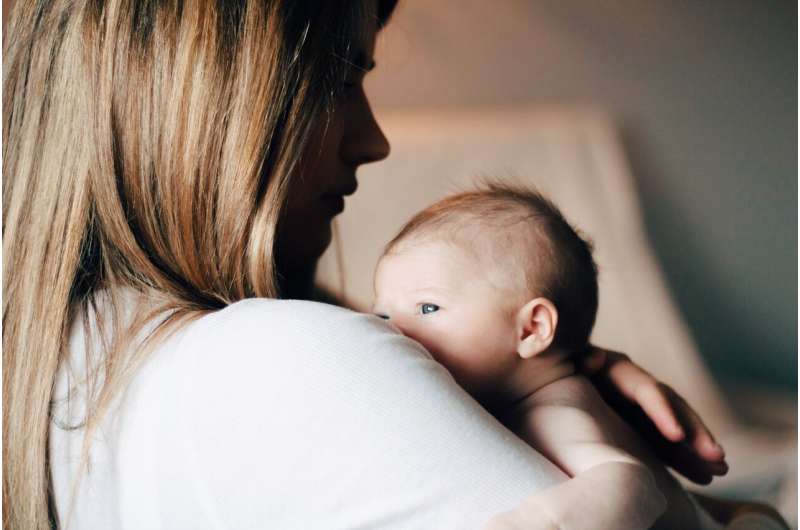
People with a history of concussion face a 25% higher risk of having severe mental health issues after childbirth, according to a new study from ICES and the University of Toronto.
The research underscores the importance of identifying individuals with past concussions early in their prenatal care and highlights the need for long-term, trauma-informed support to safeguard their mental health.
“We found that individuals with a history of concussion were significantly more likely to experience serious mental health challenges, such as psychiatric emergency department visits or self-harm, in the years following childbirth,” says lead author Samantha Krueger, a registered midwife and Ph.D. candidate in Health Research Methodology at McMaster University.
The study was completed as part of Krueger’s MSc at the University of Toronto’s Institute of Health Policy, Management and Evaluation. It is published in the Journal of Clinical Psychiatry.
“This association was especially strong for people with no prior mental health history, meaning that concussion may be an important but overlooked risk factor during pregnancy and postpartum care,” adds Krueger.
The study followed more than 750,000 birthing people across Ontario between 2007 and 2017, tracking mental health outcomes for up to 14 years after delivery. Researchers found that among those with a history of concussion, 11% experienced severe maternal mental illness, compared to 7% for those without prior concussions.
Even after adjusting for various factors like age, income, and history of interpersonal violence, concussion was associated with a 25% higher risk of severe mental illness.
The study’s findings were particularly striking among participants without a pre-existing mental health diagnosis. For these individuals, a prior concussion increased the risk of developing severe maternal mental illness by 33%, compared to those with no concussion history.
Senior author Dr. Hilary Brown notes that the physical and emotional demands of parenting may exacerbate concussion-related challenges. “Sleep is critical to recovery after a head injury, but sleep deprivation is a reality for many new parents,” says Brown, who is an Adjunct Scientist at ICES and Associate Professor in the Department of Health and Society at the University of Toronto Scarborough.
“Cognitive impairments, sensitivities to light and noise, and the stress of caring for a newborn can all intensify concussion symptoms, which in turn may raise the risk of mental health issues over time,” says Brown.
Given the biological links between brain injury and mental illness, the researchers advocate for routine antenatal screening for concussion history, provision of mental health resources, and the use of trauma-informed care during the postpartum period.
“Our study points to a critical need for health care providers to take concussion history into account when supporting new parents,” adds Krueger. “Early identification and long-term support could make a real difference in preventing serious psychiatric outcomes.”
The study contributes to growing evidence that reproductive care should incorporate neurological and mental health factors to address the full spectrum of risks faced by birthing people. The researchers hope their findings will encourage health care providers and policymakers to prioritize concussion prevention in people of reproductive age and ensure adequate mental health resources for new parents with concussion histories.
More information:
History of Concussion and Risk of Severe Maternal Mental Illness: A Population-Based Cohort Study, Journal of Clinical Psychiatry (2024). DOI: 10.4088/JCP.24m15373
Citation:
Concussion history linked to 25% higher risk of severe postpartum mental illness (2024, November 4)
retrieved 4 November 2024
from https://medicalxpress.com/news/2024-11-concussion-history-linked-higher-severe.html
This document is subject to copyright. Apart from any fair dealing for the purpose of private study or research, no
part may be reproduced without the written permission. The content is provided for information purposes only.



